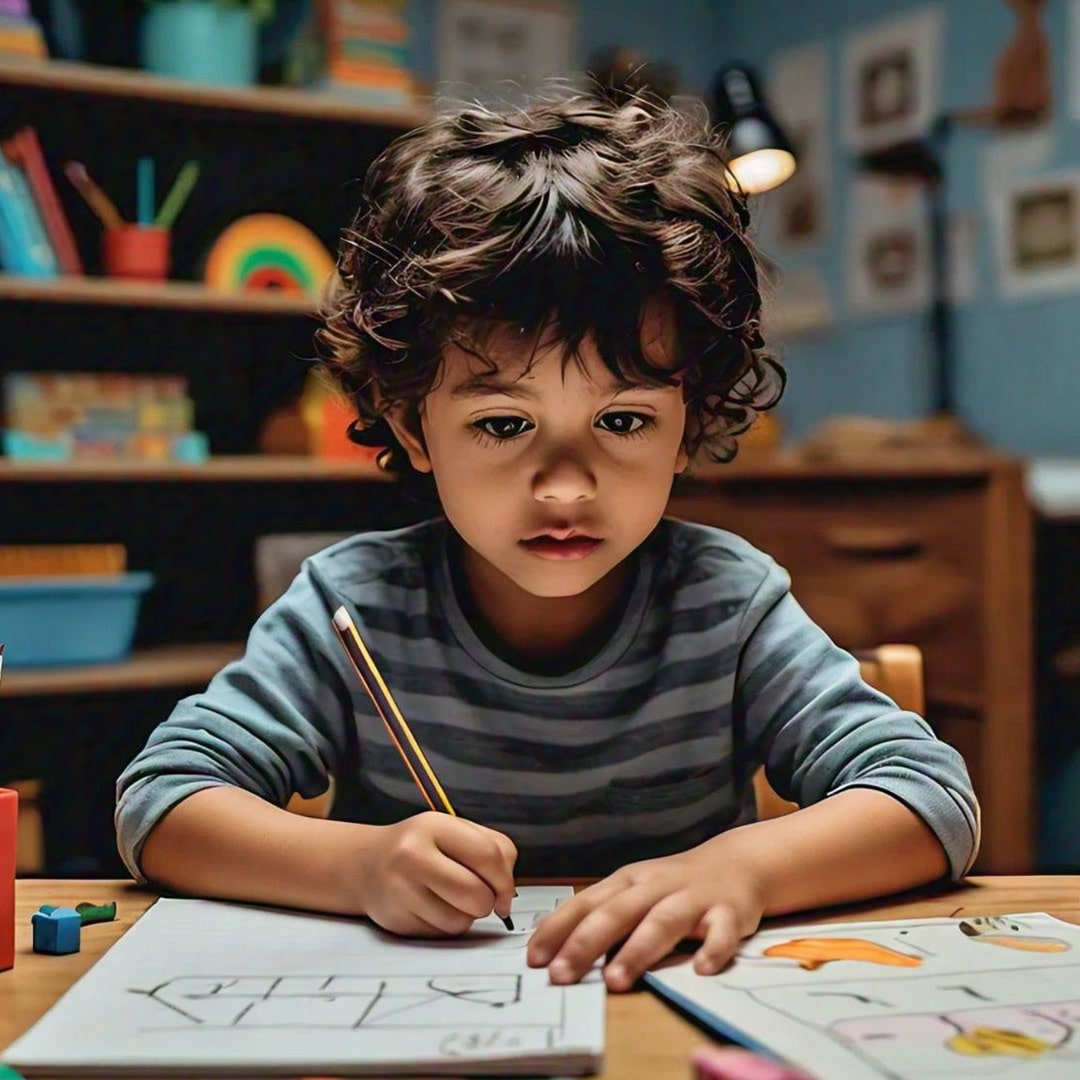Please enter the code we just sent to whatsapp 91-11-46710500 to proceed
Didn't Receive OTP?

In this constantly evolving environment of education, boosting a child's ability to write is significant. Offering constructive feedback may prove challenging but with the right mindset, it may turn out to be rewarding and beneficial experience! Let's explore manners to provide feedback that not only enhances your child's writing but also makes the process pleasant and constructive.
Why It Works: Everyone enjoys a great compliment, and children are no different —especially when it’s filled with positivity! Starting with a praise boosts, your child's confidence and sets a positive tone.
“Your story's introduction is really engaging! I’m excited to know what happens next. To make it even better, consider adding a bit more details to the setting. But overall, wonderful job!”
Use specific praises to make your feedback genuine and inspiring, this can encourage them to continue writing and exploring.
Children thrive on clear direction. Vague comments can leave them unsure of what they did well and what needs tweaking. By providing constructive feedback, you give them a clear path to improvement while reinforcing the elements they’ve nailed.
Instead of simply saying, “Your story is great,” you might say, “The dialogue between your characters felt very real and kept me hooked! To make the scene even more vivid, you could add more descriptive details about where the conversation is taking place. Is it a cozy living room, or maybe a bustling park?” This type of feedback not only praises their strength but also offers a specific area for enhancement.
Think of your feedback as a guidepost, pointing out where they’ve succeeded and where they can focus their efforts to improve. This way, you help them build on their strengths and address specific areas that need development.
Feedback that’s actionable gives learners clear, adaptable steps they can take to upgrade their writing. Rather than just pointing out what’s wrong, you’re offering a roadmap for them to follow.
You could say, “Your narrative has a fantastic plot, but the finishing seems a bit hurried. Try adding a few more sentences that show how the characters feel about what’s happened.” This not only helps them comprehend what needs correction but also provides a clear approach to do it.
Ensure your recommendations are specific and feasible. This helps children see that improvement is within reach, which motivates them to incorporate your feedback and continue enhancing their writing skills.
When children learn to assess their own work, they become more independent and thoughtful writers. Self-assessment encourages them to think critically about their writing and take responsibility of their improvement.
After giving feedback, ask them, “Which part of your story do you think could be clearer? How do you think you could improve it?” This prompts them to mirror on their work and think about ways to enhance it.
Make self-evaluation a regular part of the writing practice. By regularly asking these reflective questions, you facilitate learners develop the habit of critically evaluating their work, which is essential for growth as a writer.
Constructive feedback should gently guide children toward areas where they can grow without overwhelming them. By focusing on improvement opportunities, you encourage them to explore new ideas and take their writing to the next level.
You might say, “You’ve done an incredible job developing the characters, but the plot could be more interesting. What if you added a shocking twist midway through the story?” This kind of suggestions encourages creativity and shows the budding writers where they can push their writing further.
Frame your feedback in a way that feels like an invitation to experiment and explore new possibilities. This approach makes the idea of improvement feel exciting rather than daunting.
Highlighting the importance of revision helps children understand that writing is a process. First drafts are just the beginning, and revising is where their work can really shine.
You could say, “Your initial work is a fantastic start. Let’s concentrate on revising it to make the dialogue flow more natural and add more descriptive language.” This feedback points out that revision is a standard and necessary part of writing, not a sign of failure.
Reinforce the idea that good writing often involves multiple drafts. By standardizing revision, you help children see it as a chance to refine their thoughts and express themselves more distinctly.
This method creates a well-rounded approach to feedback by combining compliment, inquiry, and beneficial suggestions. It helps children feel supported and understood while also guiding them towards improvement.
You might say, “I really liked how you introduced the main character. What inspired their personality? Maybe you could show more of their traits through their actions in the next draft.” This approach encourages dialogue and makes feedback feel collaborative rather than critical.
Use this strategy to maintain a balance in your feedback. By opening with a compliment, you establish an affirmative tone, and by ending with a suggestion, you provide clear guidance for enhancement.
Giving positive and constructive feedback on your child’s writing is an effective way to help them develop as a writer. By focusing on positivity, specificity, actionable suggestions, and encouraging self-assessment and correction, you’re not just indicating out areas for enhancement—you’re guiding them towards becoming more skilled and confident writers.
Take these tips to heart and start applying them today. Your thoughtful feedback can make a world of difference in your child’s writing journey, empowering them to succeed and watch their writing skills flourish!
Shape Your Kid's Future with Bambinos Classes | Bambinos.live India's No. 1 English Communication Platform For Kids | Click here to Book a Free Class Limited time offer.